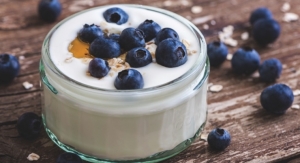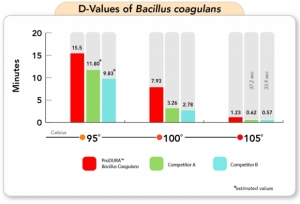11.15.12
A study performed by the University of Nebraska on the persistence of Lactobacillus demonstrated that the DDS-1 strain of Lactobacillus acidophilus from Nebraska Cultures Inc., the exclusive supplier of Dr. Shahani’s probiotics, persists through the entire digestive tract.
With the persistence of probiotics never proven, and often questioned, the results of the study, “Comparison of the Colonization Ability of Autochthonous Allochthonous Strains of Lactobacilli in the Human Gastrointestinal Tract,” by Steven A. Frese, Robert W. Hutkins, and Jens Walter, was able to show clearly that the DDS-1 strain persists in the gut and survives all the way through the colon in human subjects, proving that the strain can provide health benefits when taken on a regular basis. While there is clinical evidence that supports the health benefits of probiotics, there has never been a study proving that the DDS-1 strain actually reaches the colon and persists long enough to do its work, until now.
Proving persistence of the DDS-1 strain was the driving factor for the study. During three individual eight-week periods, separated by three to four weeks, the study compared the DDS-1 strain to two strains that are known to colonize successfully in the gut, but are not known to be probiotic in nature: one that has an ancient history with humans (Lactobacillus reuteri PTA-6475), and one that successfully colonized a healthy adult human (Lactobacillus mucosae FSL-04).
“We wanted to prove the strength of our strain and brand through human clinical trials since many probiotic studies have been done in labs in Petri dishes,” said Michael Shahani, COO for Nebraska Cultures. “Our intention is to be able to guarantee that our DDS-1 strain gets where it needs to go for users to reap the largest benefits of using probiotics, and this study allows us to do just that.” For more information: www.nebraskacultures.com
With the persistence of probiotics never proven, and often questioned, the results of the study, “Comparison of the Colonization Ability of Autochthonous Allochthonous Strains of Lactobacilli in the Human Gastrointestinal Tract,” by Steven A. Frese, Robert W. Hutkins, and Jens Walter, was able to show clearly that the DDS-1 strain persists in the gut and survives all the way through the colon in human subjects, proving that the strain can provide health benefits when taken on a regular basis. While there is clinical evidence that supports the health benefits of probiotics, there has never been a study proving that the DDS-1 strain actually reaches the colon and persists long enough to do its work, until now.
Proving persistence of the DDS-1 strain was the driving factor for the study. During three individual eight-week periods, separated by three to four weeks, the study compared the DDS-1 strain to two strains that are known to colonize successfully in the gut, but are not known to be probiotic in nature: one that has an ancient history with humans (Lactobacillus reuteri PTA-6475), and one that successfully colonized a healthy adult human (Lactobacillus mucosae FSL-04).
“We wanted to prove the strength of our strain and brand through human clinical trials since many probiotic studies have been done in labs in Petri dishes,” said Michael Shahani, COO for Nebraska Cultures. “Our intention is to be able to guarantee that our DDS-1 strain gets where it needs to go for users to reap the largest benefits of using probiotics, and this study allows us to do just that.” For more information: www.nebraskacultures.com

















